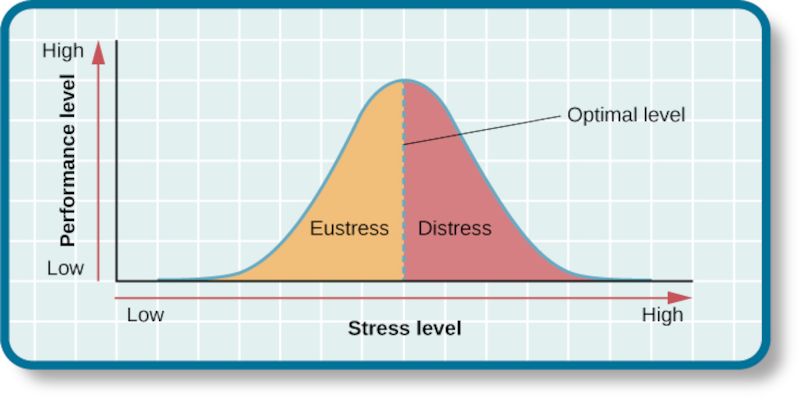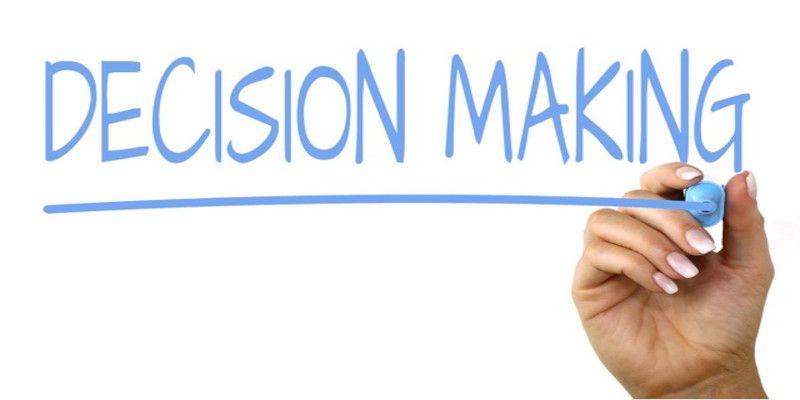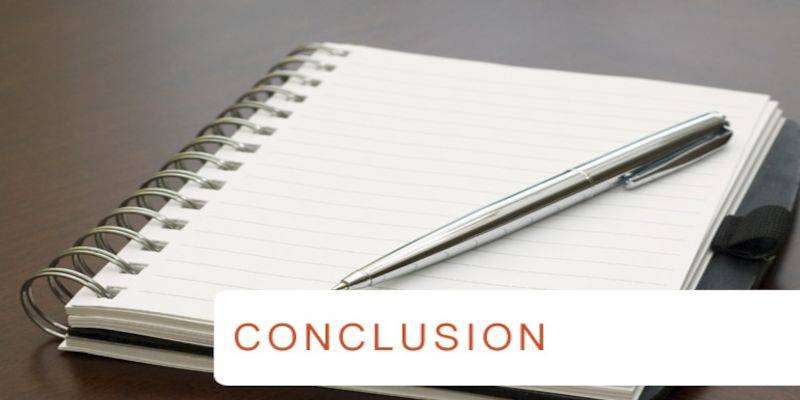Table of Contents
ToggleNobody is perfect, and each one of us, no matter how rich, beautiful, and smart we might seem, has our insecurities.
The good thing is that we can overcome our insecurities and transform ourselves into a new and improved version of ourselves.
The bad news is that it’s hard work and that it requires a lot of courage. Two things a lot of us lack in today’s society.
Let me answer why it’s bad, and how to overcome being insecure.
Why is insecurity bad?
Insecurity is bad because it detracts from our lives.
It is detrimental to our existence and can prevent us from becoming the best version of ourselves that we would be if we applied ourselves with the required amount of confidence.
It makes us less content, and less desirable and can lead to a whole host of difficulties such as anxiety, perfectionism, self-isolation, and many other behavioral and psychological issues.
In short, self-doubt is bad for our health. Both physically, and mentally.
How to overcome being insecure

But for all the issues that insecurity problems can cause, overcoming insecurity is possible and attainable if we are willing to work hard and smart, all the while being courageous.
So, how to overcome being insecure?
Facing our insecurities instead of running
By facing our insecurities head-on.
By challenging the untrue thoughts and voices in our heads, and by exposing ourselves to the things we’re insecure about, and might fear.
Exposure therapy
This is what we call exposure therapy, and it is a scientifically proven method that works very well to combat anxiety, fears, and insecurities.
But exposure to the things we’re anxious about or fear is counterintuitive to most of us. If we’re afraid of something, then our instinct is to hide. It’s a fight-or-flight response, and most of us flee to survive.
And while this might be true in the short term, we don’t learn how to combat this insecurity or phobia.
Thus, this insecurity will remain. And the issue will only grow larger, and increase in strength. We will grow more and more anxious about it until the problem grows so out of proportion that it seems unsurmountable. Until it appears like there’s no way to combat, and deal with the concern effectively anymore.
That’s why we should tackle insecurities, and issues in general, early on. Preferably as soon as they arise. What we address, and thus consequently fight, will decrease in strength. What we avoid, and thus hide from, will grow in power.
Becoming competent
Becoming capable at the things we’re insecure about will go a long way towards becoming a competent, and confident individual.
It’s hard to be confident when we are incompetent, or not as capable as we should be in one, or more facets of our lives. It’s hard to trick ourselves into being confident if we know we’re not good at something.
So becoming someone competent effectively helps us to increase our self-esteem and confidence.
Problems associated with insecurity

Insecurities can cause a lot of problems that are caused due to a lack of confidence.
The bad news is that this can lead to a whole variety of concerns. These are some of the most common insecurity issues:
Avoidance behavior
Insecurity can lead to avoidance behavior out of fear and anxiety. Avoidance behavior is when we tend to stay away from the things we are scared, and insecure about. If we think about it rationally, then it makes sense to run away from the things that scare us. Because then those things can’t hurt us if we put ourselves out of harm’s way.
But the thing is, when we stay away from the things we’re scared about, then we will grow even more fearful over time since we’re actively avoiding said things. The issue grows in strength until it becomes seemingly unsurmountable.
Furthermore, avoidance behavior robs us of the chance to get better at the thing we’re actively avoiding.
The solution? Actively confronting the thing(s) we’re insecure and/or afraid about. When we put ourselves out there in that scary situation, then it allows us to learn and to get practical experience.
It also teaches us that it’s probably not as alarming as we first thought. This means that the insecurity loses some of its power over us.
Anxiety

Insecurity and anxiety go hand in hand.
Common insecurities can cause a lot of mental distress. Thinking about our insecurities and negative emotions is extremely mentally draining. This means that insecurity is often accompanied by anxiety, and sometimes even fear in extreme cases.
Anxiety can turn into real phobias over time if left unchecked. Thus, we need to make it a point, to be honest with ourselves to identify and admit that we’ve got a problem and to treat those insecurities as quickly as possible to prevent them from getting out of hand.
Anxiety can lead to a lot of mental health difficulties such as depression, and obsessive-compulsive disorder (OCD), and can even lead to suicide.
Perfectionism
Self-doubt can lead to a low level of self-esteem. Why? Because we have this poor self-image about ourselves. This low self-esteem can result in perfectionism in an attempt to desperately cover up our weaknesses and improve our lives.
Bettering our lives and trying to work on our insecurities is great, and should be encouraged by everyone. Nonetheless, everything is in moderation. Just because we decide to work on our self-doubts doesn’t mean we should go overboard and become perfectionists in the process.
Besides, perfection is something objectively unattainable. We should strive to be the best individual we can be, but we should always keep in mind that we can’t do it all. Furthermore, others will be naturally better than we are in some areas of life, simply because they’re more talented at those things.
Low self-esteem
Insecurities can, and will, often lead to low self-esteem. Low self-confidence can cause us to develop a negative image of ourselves.
This low self-esteem can prevent us from taking chances that we otherwise would have taken because we would be confident that we could complete said task(s) and that we would learn something from it.
If we want to succeed in life, no matter what it is, then we need a healthy amount of self-esteem to have the courage to even attempt to undertake that challenge and take the opportunities that are given to us.
Self-isolation

When our insecurities lead to a negative self-image, then we may hibernate to prevent ourselves from getting hurt.
Self-isolation can also potentially occur because we’re stuck in a negative mindset, such as “others won’t like us anyway”, simply because we don’t like ourselves.
Self-isolation has extremely negative effects on our mental health because we are social animals, and this means that we require social interactions with other people in order to stay sane.
Avoidant attachment styles
Insecurity can lead to avoidant attachment styles down the road because one has learned to stay away from people in an attempt to avoid getting hurt. Perhaps they do so because people treated them badly or harshly because of their insecurities in the past.
Of course, the foundation for meaningful relationships is trust. And trust is exactly what is missing and what leads to avoidant attachment styles.
One must learn to trust other people, despite all the pain others might have caused us in the past. That’s not to say that there aren’t bad people out there with bad intentions, or that you should foolishly and naively trust everyone you meet.
But you should learn to identify and trust people who truly mean the best for you.
Poor performance

Insecurities can lead to poor self-esteem. Furthermore, once we are insecure, then chances are we won’t have the essential courage to attempt challenging tasks.
All of these things combined can result in poor performances in our social lives, work environment, and even our sports activities.
A healthy amount of self-confidence is needed to perform optimally. That’s not to say that arrogance is necessarily better, as being overly confident can lead to poor performances as well since we’re more likely to misjudge the situation and overestimate what we’re capable of.
Overly critical of oneself and others
Some folks who are insecure take a lot of things personally, even the things that weren’t meant that way. Some might also be insecure because others have been critical and vocal about your performance in the past.
This can lead to hyperawareness, and this hypervigilance can cause us to become overly critical about ourselves, and even other people because we’re used to treating ourselves that way.
Poor decision-making skills

Common insecurities can be a big reason why we doubt ourselves. And when we start doubting ourselves, these negative thoughts can quickly spiral out of control.
We might have doubted our performance at work, for example. But soon, this can spread to our performance with our loved ones, at our sports club, and our social circle.
Good decision-making skills can only be a possibility when we are confident, and have a healthy amount of self-esteem.
Again, arrogance isn’t good either, since people who tend to rate themselves as being better than they truly are, are more inclined to make worse decisions than those with a more accurate self-image.
Arrogance to cover up weakness
People have a proclivity to overcompensate for their weaknesses. Which, in this case, are their insecurities.
However, arrogance is not the way to go. Because arrogance is simply a way of hiding that weakness instead of attempting to fix the root of the issue.
It is more courageous and helpful to admit your mistakes and personal faults than it is to hide behind a mask and pretend that you’re a perfect person.
Instead, admit your personal insecurities and weaknesses to yourself and strive to become a better person. This will greatly enhance your life experience.
Poor communication skills

When we’re insecure, we can doubt our own ability to communicate with other people. We might think that others believe that we’re not worthy of our time, or perhaps we’re constantly worrying that they might not like us.
Either way, this kind of negative thinking will cause poor communication skills, since we’re less likely to engage in social behavior with others. Thus, we get fewer opportunities to practice our social skills.
What is more, these kinds of negative thoughts can cause poor communication skills since others pick up on our pessimistic thoughts, behavior, and insecurities.
Focussing more on what other people want instead of our own needs and desires
Insecurities can cause us to become unsure about what we want out of our lives. It can even lead to people foregoing their dreams and desires for the needs and wants of other people.
It’s certainly not a bad thing to take note and into account what other people want and require. We need to be considerate and altruistic as well sometimes to live together peacefully, and to trust and help one another.
Nevertheless, we mustn’t forego our desires for what other people want, at least not all the time. In my opinion, we should typically attempt to satisfy our own needs first, and then attempt to give something back to those around us.
If we don’t satisfy our own needs, we’ll just turn envious, angry, and even vengeful over time. And this will help nobody.
Final note

Overcoming self-doubt requires courage and the necessary amount of knowledge. But then again, good things rarely come easily.
If you know how to overcome insecurity, then your life will improve as a result. You will emerge as a new, and more importantly, better version of yourself. You will be more content, and your life will be richer and more intense as a result.
Remember, confidence is silent, and insecurity is loud.
Call to action
Acknowledge and consequently pinpoint your insecurities.
Once you’ve identified those most likely common insecurities, make it a point to address them, so they don’t prevent you from living your life to the fullest.
Start with your biggest fear. Because combating all your anxieties at once will probably be too much and overwhelm you in the process. That’s why you should pick a few at most to begin with.
